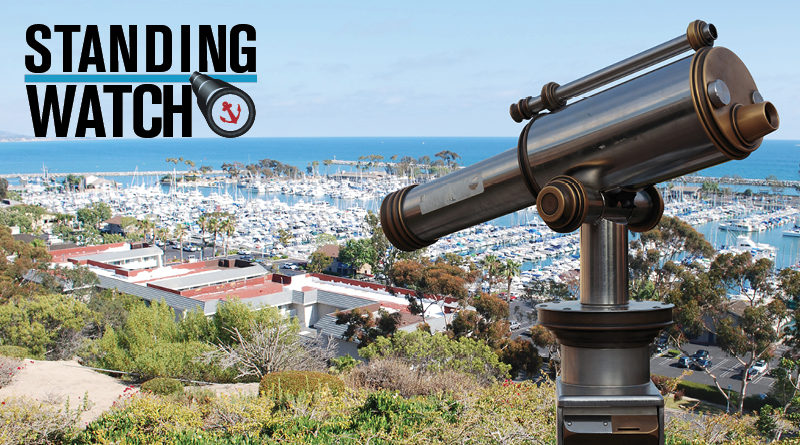Tariffs and Boaters: What Does It Mean For You?
Industry leaders plead with White House to re-consider duties. When will costs trickle down to consumer?
NATIONWIDE — Everything has a cost – including tariffs. The only question is not whether, but when, Pres. Donald J. Trump’s imposition of tariffs on multiple countries and industries would eventually trickle down and harm the consumer. Will the cost of buying a boat, for example, substantially rise because of the tariffs placed on aluminum and steel tariffs?
A lot of the chatter and questioning surrounding the imposition of tariffs focus on the direct effects of Trump’s policies on industry-level activities, such as jobs and product exports. Such concerns, of course, are eventually bourn on to the consumer – in the form of an increased sticker. The issue of tariffs and boat manufacturers won’t simply be an industry issue – companies will eventually adjust and pass along costs to the consumer.
We don’t have any clarity yet as to when consumers would feel the pinch of the tariffs or what the beefed-up price tags would look like, but what should you, as a boater, do to keep up with the Trump administration’s trade war and its potential effects on the consumer market?
Keeping your pulse on what industry leaders are saying is a good place to start.
Bill Yeargin, CEO of Correct Craft, penned an op-ed in the Aug. 11 issue of Washington Examiner. He expressed concern of what the current trade war would mean to the recreational boating industry.
Correct Craft, a boat manufacturer based in Orlando with manufacturing plants at six other U.S. locations, has been monitoring the imposition of international tariffs since the onset of the trade war. The company, according to Yeargin, imports certain materials for the boats it builds.
“These hard-and-fast tariffs are unfairly punishing manufacturers like Correct Craft, where we exclusively use U.S. aluminum, even though more than 90 percent of aluminum used in the U.S. by American boat makers is sourced from domestic mills,” Yeargin wrote. “This is because the administration’s tariffs have distorted the global market, driving up the price of domestic aluminum by 20 to 30 percent. This is bad news for our company, our workers, and our industry.”
Yeargin added the tariffs on products used to build fishing and pontoon boats, among others, means manufacturers will have a harder time selling boats to foreign buyers.
“These three tariffs – 25 percent on Chinese marine products, 210 percent on Chinese aluminum sheet, and 10 and 25 percent on all aluminum and steel – have driven up costs across the board for our whole industry,” Yeargin wrote in his op-ed.
“Canada, Mexico, and the European Union – which account for 69 percent of total recreational boating exports and the majority of Correct Craft’s foreign sales – have implemented retaliatory tariffs of 10 percent, 15 percent and 25 percent respectively,” the Correct Craft CEO continued. “These new tariffs are going to make it more difficult to sell boats around the world – and this puts the industry’s $1.8 billion in recreational boat and engine exports and the jobs of Americans in jeopardy.”
The current trade war wasn’t all doom and gloom to the National Marine Manufacturers Association (NMMA), which, in an Aug. 9 news update, stated the tariffs are both good and bad.
NMMA commended Trump for “cracking down on China’s unfair trade practices” but did not agree with the administration’s tactics to achieve equitable results.
“While NMMA continues to caution against further escalating the trade conflict, some recent actions are encouraging,” the NMMA news update stated. “The Trump administration announced their final list of $16 billion in Chinese products that will face a 25 percent tariff starting Aug. 23. The list contains a range of marine related products. However, floating docks were among the items excluded, drawing applause from the industry.
“China announced new tariffs on approximately $60 billion worth of U.S. exports,” the Aug. 9 news update stated. “The move was a result of the Trump administration’s proposed increase of Section 301 tariff from 10 to 25 percent on $200 billion in Chinese goods. For the first time boats were included on China’s retaliation list – with tariffs ranging from 10 to 25 percent – which brings the total number of countries that have retaliated against U.S. boats to four.”
NMMA used its grass roots advocacy website, Boating United, to ramp up its campaign against tariffs.
“The escalating trade conflict is threatening the recreational boat industry, and there is no end in sight,” the take action page stated. “Costs are rising, boat orders are being canceled, and uncertainty is wreaking havoc across the country.”
The Boating United action page also urged boaters and maritime industry professionals to write, tweet or call the White House, Commerce Sec. Wilbur Ross and other federal representatives about ending the trade war.
“The recreational boating industry, which employs 650,000 Americans and contributes $39 billion to the economy, is caught in the crosshairs of the trade war. Please protect American jobs and end the tariffs,” a suggested tweet stated.
Those wishing to send federal leaders an email had a little more ammunition listed in their suggested letter.
“Our industry is American-made – 95 percent of all boats sold in the U.S. are made in the U.S. – and supports [more than] 650,000 jobs nationwide. But recent actions on trade by the [Trump] administration are uniquely threatening our industry,” the suggested letter/email stated.
Leadership with the Recreational Boaters of California (RBOC), interestingly enough, has yet to chime in with a formal policy position on aluminum and steel tariffs.


